
Q: Good morning Dr. Sairam. Thank you for taking the time to speak about hydroponics with us. Let's jump right in. To start, what got you interested in hydroponics?
The interest here at Kanha was led by Daaji. He wanted to explore various non-conventional and sustainable ways of growing food. He has been doing this for the last twenty years, in his backyard in the US. This has been his passion - exploring alternative ways of growing food.
Prior to seventy years ago, food was nutritious and safe, but the quantity was not enough to feed the people of the world. There was a desperate need to increase productivity, so fertilizers, pesticides and hybrid crops were introduced. This is also when the needs of the trader came into the picture transportability, storability, shelf life, and packing in boxes became the focus. This happened at the expense of the nutrient content of the food and the needs of the consumer.
In the last seventy years, there's been a complete shift in food growing. Now we satisfy our hunger but not our nutritional needs. That is where the challenges come. It's time to shift back to local food production - I call it micro-farming.
Now we satisfy our hunger but not our nutritional needs. That is where the challenges come. It's time to shift back to local food production - I call it micro farming.
Q: So how does hydroponics fit in? I thought the nutrients in our produce come through the soil, but in hydroponics there is no soil. Can you explain?
Our understanding of the source of a plant's nutrition is also limited. When testing the nutrition content of crops grown in soil and the same crops grown hydroponically, is there any difference?
Denne historien er fra May 2022-utgaven av Heartfulness eMagazine.
Start din 7-dagers gratis prøveperiode på Magzter GOLD for å få tilgang til tusenvis av utvalgte premiumhistorier og 9000+ magasiner og aviser.
Allerede abonnent ? Logg på
Denne historien er fra May 2022-utgaven av Heartfulness eMagazine.
Start din 7-dagers gratis prøveperiode på Magzter GOLD for å få tilgang til tusenvis av utvalgte premiumhistorier og 9000+ magasiner og aviser.
Allerede abonnent? Logg på
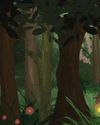
A Flower from THE HEAVENS
November 14 is Children's Day. This year, SARA BUBBER brings to you a world of forests, magical flowers, festivals, and some animals you may have never seen.

Meeting Phenomenal Women
The author, CHITRA BANERJEE DIVAKARUNI, is interviewed here by TARA KHANDELWAL and MICHELLE D'COSTA about her books on mythology, like The Palace of Illusions, which is a retelling of the Mahabharata from Draupadi's point of view, and The Forest of Enchantments, which is a retelling of the Ramayana, from the eyes of Sita. And there's The Last Queen, which is about Rani Jindan's life.
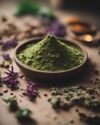
HERBAL TOOTH POWDERS: Rediscovering Ayurveda's Natural Secrets
SRAVAN BANDA presents a natural herbal tooth powder, offering a holistic approach to oral hygiene, harnessing the power of medicinal herbs.

The Dance of Light and Shadow Lessons from the Dolomites
ALAIN DESVIGNE explores the Dolomites, listed as a UNESCO World Heritage Site in 2009.
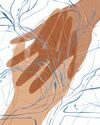
FINDING OUR WAY
A Polynesian Explorer's Journey of Discovery
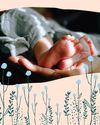
The First Imprint: Understanding PTSD
CHRISTIANNA DEICHMANN is the Director of Education at the Association for Pre and Perinatal Psychology and Health (APPPAH), where she educates both professionals and parents on fostering the most nurturing environments for welcoming new life into the world.
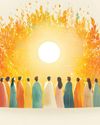
The Tipping Point
In this final conversation of the series, J. FREDERICK ARMENT continues to talk with CHRISTINE JONES about promoting peace in the world.
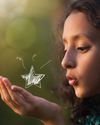
UNLOCK YOUR POTENTIAL
Take The Brighter Minds Path To Cognitive Development

The Intrinsic Goodness of the Heart
DAAJI shares some thoughts on heartfelt acceptance and all it has to offer. He says, \"It is the heart's intrinsic goodness that allows us to accept everything as part of us.
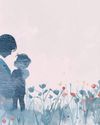
How Does Fear Affect Our Roles as Mothers? - Neelam Shivhare explores some of the great ancient texts of India on motherhood, compares the behavior of Kaikayi and Yashoda
Neelam Shivhare explores some of the great ancient texts of India on motherhood, compares the behavior of Kaikayi and Yashoda, and realizes the importance of removing fear from our hearts in order to nurture our children.For young women like myself, who are future mothers, I trust we are on the path of becoming selfaware and brutally honest with ourselves. We are creative beings, never forgetting the gifts with which we have been bestowed— the love and tenderness, natural instincts, and intuition to feel the right path. It all lies in the mysterious meanderings of the heart. Are we really listening to our hearts, or confusing the bombarding information on social media with reality?